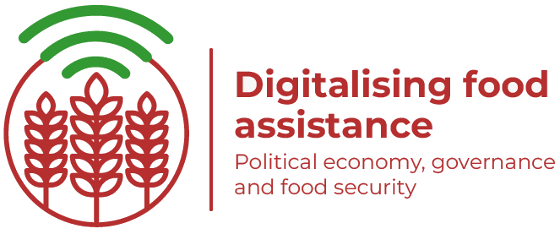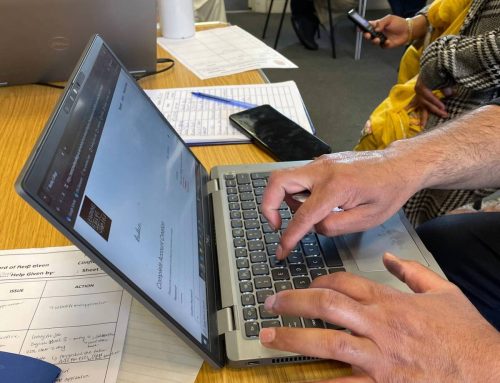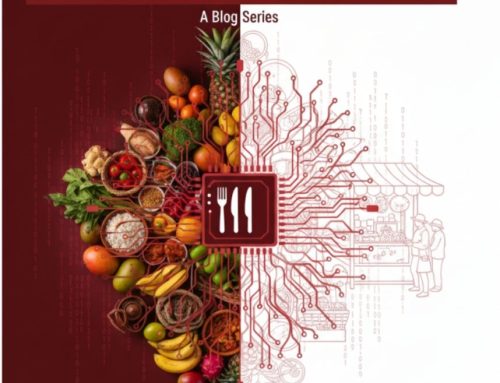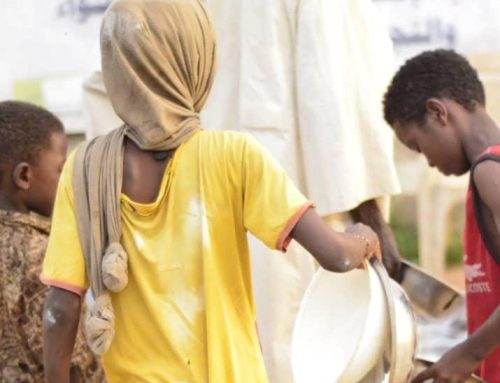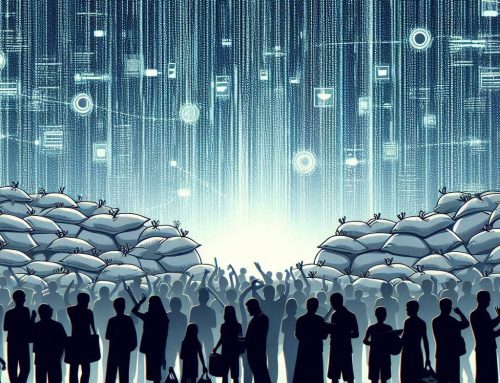Starvation crimes, network shutdowns, and obstacles to humanitarian action in Gaza and Sudan
Authored by: Susanne Jaspars
In this blog, IHSA Vice-President and Senior Research Fellow at the Food Studies Centre at SOAS (University of London) Susanne Jaspars summarises and expands upon a contribution to the roundtable that followed the inaugural IHSA Annual Lecture on “War and Humanity” held in Bergen in May 2024.
This blog was initially published on
Starvation as a crime against humanity
For about a year now, there’s been talk about imminent famine- and now famine – in Gaza and parts of Sudan, with very little action. In this blog post, I discuss starvation as a war crime and crime against humanity, what can be done in practice to act on starvation crimes, and why blocking communications networks needs to be seen as such a crime.
War causes famine through acts that undermine the means of survival of particular population groups. This includes acts of commission such as attacks on production, markets, restriction of access for humanitarian actors, and the obstruction of relief. Also acts of omission such as failures to act in response to warnings or signs of famine, and acts of provision: the selective provision of food to one side of the conflict. These tactics can be part of counter-insurgency operations but also yield benefits for some. For example from being able to sell food at high prices and buy livestock at low cost, or use cheap labour from displaced populations.
Extreme famines are therefore the result of political acts or decisions (local, national, international), meaning we need to understand: Who committed the famine? How was it committed and why? Who were the victims? Who was involved? In contrast to famine, a crime is not ended, but criminals are deterred, detained, prosecuted.
Legal frameworks such as International Humanitarian law (IHL) and International Criminal Law (ICL), specify starvation as a crime: ‘It is prohibited to attack, destroy, remove or render useless objects indispensable to the survival of the civilian population […] for the specific purpose of denying them for their sustenance … whether in order to starve out civilians, to cause them to move away, or for any other motive’. The crime of starvation includes wilfully obstructing humanitarian aid. The term “objects indispensable to survival” includes more than food, encompassing water installations and supplies, irrigation works, medicine, clothing, shelter, fuel, and electricity. There is no pre-defined list as items indispensable to survival are evolving and context dependant.
Also, in 2018, the UN Security Council unanimously adopted resolution 2417 which condemns the use of starvation as a method of warfare against civilians and emphasised that it may constitute a war crime. I would like to discuss this a little further, in particular:
How does reporting and accountability for starvation crimes work in practice?
The Food and Agricultural Organisation (FAO) and the World Food Programme (WFP) report twice yearly to the UN Security Council (UNSC) on Resolution 2417. The UN Office for the Coordination of Humanitarian Affairs (OCHA) can also write closed White Papers to the UNSC and individual donors (like FCDO or the EU) too. But how is this being operationalised? What and how are FAO and WFP reporting? What are some of the obstacles?
Consider the February 2024 FAO/WFP report to the Security Council on Gaza and Sudan – which is remarkably apolitical. The report states the facts on displacement, impact on food systems, and obstruction of humanitarian access, and then what is prohibited under IHL. However, these are mostly passive statements such as:
- ‘Unprecedented levels of conflict-induced displacement … have occurred.’
- ‘Civilian infrastructure has been damaged (water, fuel, electricity, bakeries, farms)’
- ‘Conflict has halted production, prices have increased’
- ‘Humanitarian aid has been restricted’
- ‘Hostilities have led to telecoms blackouts’
War seems to almost be external to people’s economies or society, something neutral. Using the passive tense to describe acts of war and its effects removes politics and responsibility. This is exactly the opposite of what is needed to understand starvation crimes.
What’s not in the report is who is causing starvation and who should be held to account (although there are some exceptions about Israeli actions in Gaza – e.g on the effect of evacuations without putting adequate infrastructure and services in place). Yet, Sudan has a long history of aid manipulation and since April 2023 there is evidence of the Sudan Armed Forces (SAF) denying access to humanitarian aid, and of the Rapid Support Forces (RSF) looting, destroying farms, and recruiting forces by threatening starvation. This presents an intensification of the long-standing extractive political economy, and involves regional and international actors. Note that exports of gold, and livestock are continuing and crude oil exports were higher in December 2023 than in the previous year.
The recommendations are all clearly needed but bland: restore humanitarian access, pressure warring parties to adhere to IHL, have an independent investigation. With UN organisations reporting, how could it be otherwise? A focus on starvation crimes was supposed to put the politics back into famine analysis. But can UN resolution 2417 do it? Questions remain on who should be reporting starvation crimes (states? resistance movements? activists? students?) and who should act on it.
The South Africa case against Israel at the International Court of Justice (ICJ) sets an important precedent, in particular the amendment to the provisional measures in March 2024: to take all necessary and effective measures – without delay – for the provision of humanitarian assistance, in response to reports of famine and starvation. Since then the International Criminal Court (ICC) is seeking a warrant for the arrest of Israeli leaders, in another unprecedented move, for war crimes of starvation. Even with these high-level actions, the crimes continue.
In contrast, on Sudan there is mostly inaction. While starvation and genocide in Gaza is played out daily on our television screens, such reports on Sudan are rare. Recent warnings of famine, and statements by UN experts, have had little impact except to pressure warring parties to come to power-sharing agreements rather than holding them to account.
Communications networks as objects indispensable to survival
Of course, much of the lack of action in response to Sudan’s crisis is due the prioritisation of geopolitics and economic interests over humanitarian response and – ultimately – stopping the war. Sudan’s invisibility is also a result of blocking and manipulating communications networks and connectivity. Most societies are digitalised, meaning that people are increasingly dependent on connectivity for their day-to-day activities or – in the case of Sudan – their survival. Connectivity becomes important in relation to starvation crimes because:
- Blocking communications networks hides information on violations of human rights and humanitarian law.
- Internet shutdowns disrupt social networks, remittances, food systems.
- Third, network shutdowns also block aid provision, not because it hinders the coordination, information and security of aid organisations, but aid itself is increasingly digitalised: pre-paid debit cards, electronic vouchers, and mobile money.
In Sudan, the Bankak App from the Bank of Khartoum has been a lifeline since the start of the April 2023 war because it could be used to transfer of money to crisis-affected people and local organisations. From early February, however, the RSF disabled all internet providers. Soon after, Starlink Satelites were introduced in RSF-held areas, which ordinary people pay to use for internet connection but which were brought in and managed by the RSF. As such, control over communications has become a way of denying services and resources to the enemy, life or death for ordinary citizens, as well as a new way of profiteering. It also illustrates the moral dilemmas of providing aid in conflict and the challenges of reporting on famine crimes. This does not mean we stop calling out starvation crimes, but rather highlights the importance for humanitarians to analyse famine as a political scandal that requires global as well as local action.
